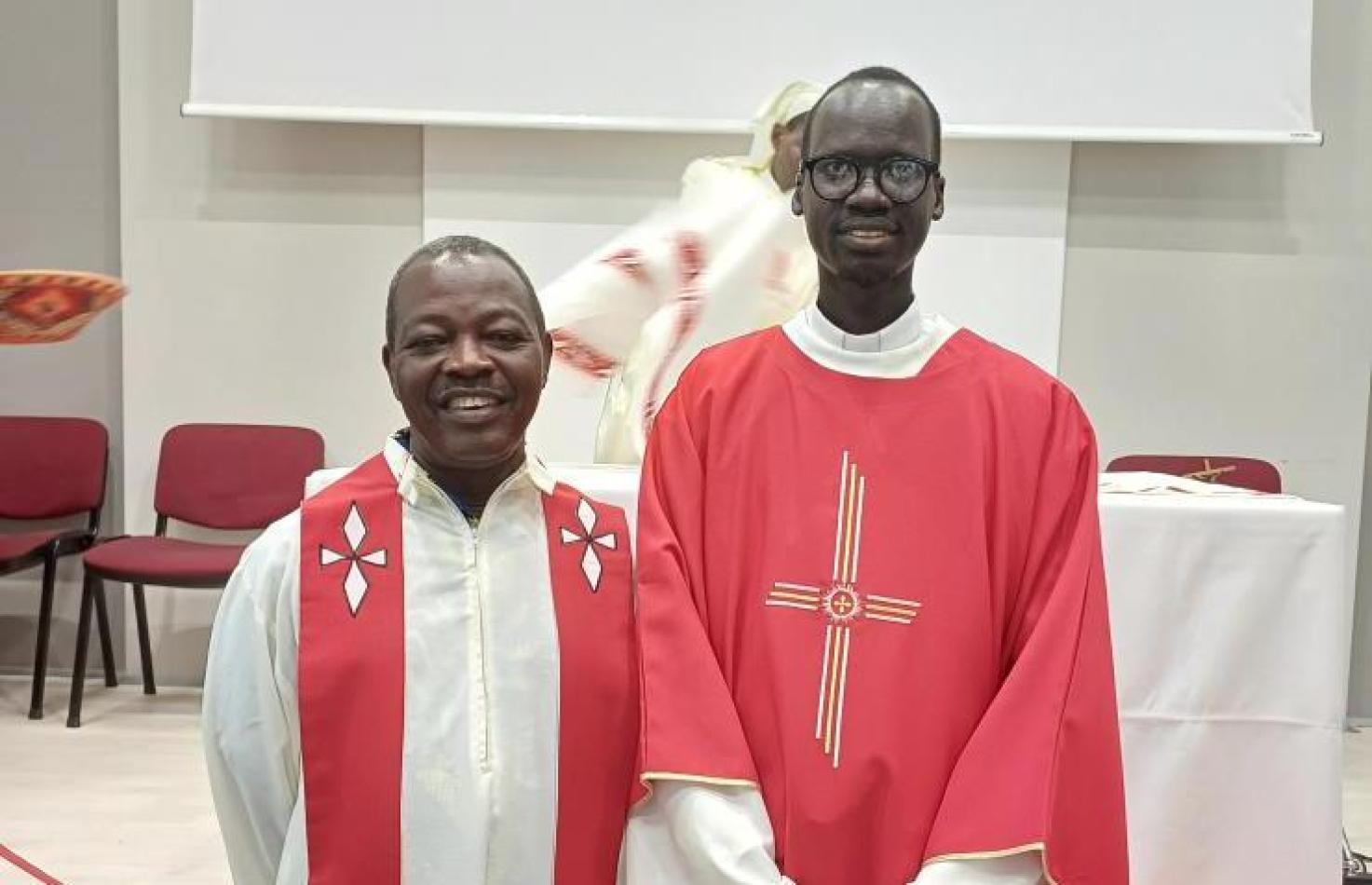Daniel Comboni
Misjonarze Kombonianie
Obszar instytucjonalny
Inne linki
Newsletter
Monday, February 26, 2024
Congolese Father Emmanuel Denima Darama has been teaching philosophy at the major seminary in Juba. He shares with us his ten years of teaching. “Philosophy helps us think and gives our students a critical spirit that helps them free themselves from sentimentality”, he says. [In the picture, Fr. Emmanuel (left) with a young priest]
My mission is to teach philosophy at St. Paul’s Major Seminary in Juba, an institution that the Comboni Missionaries helped to found. We welcome seminarians from the seven dioceses of South Sudan and two of Sudan. The two countries form a single episcopal conference and this is its only seminary. Although for a time the seminar moved to Khartoum due to the war, in 2011, after the independence of South Sudan, it returned to Juba, its original location.
It was difficult for me to accept this teaching position, to which I was appointed in 2014. My desire was to return to some of the Sudanese parishes where I had carried out rewarding pastoral service years earlier. The task of teaching is not so rewarding because it requires a lot of preparation, but little by little I discovered the importance of what I do.
Philosophy helps us think and gives our students a critical spirit that helps them free themselves from sentimentality.
I feel that my service is one hundred per cent missionary because I work to build the Church of tomorrow. I don’t live in the seminary but in the community of Moroyok, where I accompany young aspiring Comboni missionaries.
The seminary is located 13 kilometres from our house and I go there from Monday to Friday for lessons. A team of around eight diocesan priests from different parts of the country manage the institute and the formation accompaniment of the seminarians. They are all residents. The school year begins in March and ends in December. This year we have around 150 seminarians with three years of philosophy and four of theology.
One of the most serious problems we have is the low level of education of students and their poor knowledge of English, which is the language we use to teach.
Furthermore, all our students have directly or indirectly experienced war and are sometimes a little violent. However, the fundamental challenge we face is tribalism, which is much stronger in South Sudan than, for example, in my country, the Democratic Republic of Congo.
People identify a lot with their ethnicity and the Dinka, for example, consider the Nuer as their enemies and vice versa. Since their arrival at the seminary, we have tried to help the students to get to know each other better and improve their interpersonal relationships. Although in the first years, they always form small groups, living together they realize how false ethnic prejudices are and begin to make friends. This is something wonderful to see.
Other difficulties we face are power cuts, the poor quality of our library, especially that of philosophy, or the desperately slow connection to the Internet. Another problem that causes concern is the high number of dropouts in the final years of school. When the seminarians have a solid education, instead of serving the Church, some tend to look for a job in an NGO or international organisation that pays them well. Thanks to the support of the Holy See and some international organizations, the seminary has good facilities and all theology students have their own rooms.
I have been in Juba for ten years now so some of my former students are priests or deacons working in their dioceses. This gives me great satisfaction because I see that my efforts are bearing fruit for the good of the Church.
Comboni Missionaries




